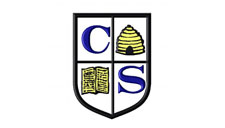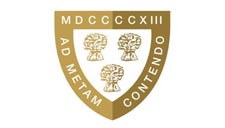School-led pathway to PGCE
SECONDARY

Thinking of a career in teaching?
A school-led pathway to PGCE is an exciting training route for graduates interested in teaching at secondary level. Working in partnership with Liverpool John Moores University, our Wirral-based Initial Teacher Training (ITT) programme is delivered in schools, by teachers.
Why choose us?
Weatherhead High School is a lead partner with LJMU and a group of Secondary and Secondary Specialist Schools across the Wirral where you can train to teach in local schools and learn from outstanding teachers.
About Us
Weatherhead High School, a World Class school, leads a partnership of Secondary schools on the Wirral peninsula who have an excellent reputation for working collaboratively to deliver high-quality initial teacher training.
Secondary PGCE with QTS are offered through our school-led pathways, in partnership with Liverpool John Moores University (LJMU).
We offer:
- A school-based bespoke initial teacher training programme, delivered in partnership with LJMU leading to PGCE with QTS qualification and 60 Masters Level credits.
- PGCE courses in a variety of subject specialisms are available across our partner schools in the WTSA.
- Placements in Wirral schools with high-quality mentoring and personalised academic and pastoral support.
- Our trainees spend the majority of their one-year full time training programme in the classroom, getting to the heart of what outstanding teaching looks like.
- From the start of the course, our trainees enjoy a rigorous training programme, delivered by highly-skilled teachers and supported by excellent school-based subject and professional mentors, and by experienced LJMU Liaison Tutors.
- We draw on the vast experience of our teaching teams to provide regular professional skills sessions where trainees across the partnership have a chance to learn together as a larger group. These sessions take place at Weatherhead High School or in one of our partner schools.
- Our trainees have regular training sessions at LJMU with a focus on their subject specialism, taught alongside their subject peers.
- Our trainees are assigned a home school where they start their teaching, and undertake a 6-week placement in a different school within the partnership during Term 2 to practise teaching skills in a new context, before returning to the home school for the remainder of the course. All of our partner schools are experienced in providing ITT and excel at developing and training their staff.
- We recruit and select our own trainees and, whilst we cannot guarantee employment, it is our aim to employ the majority of our trainees within our partner schools, offering excellent opportunities for career development.
Partner Secondary Schools
Birkenhead High School Academy
Clare Mount Specialist Sports College
Hilbre High School Humanities College
Weatherhead High School
West Kirby Grammar School
Wirral Grammar School for Girls
What our trainees say…
I felt like a member of staff being in school from day one. The programme allows you to focus on teaching.
Chloe
Thank you for all your support and for making my dream a reality.
Charlotte
Lots of professional training opportunities and school-based experience.
Jessica
I have felt thoroughly supported all year and I am so pleased I chose this route over traditional university-based training.
Aimee
Great sense of community and support to get me through a tough training year!
Jason
I would recommend Weatherhead High School for teacher training – great support and outstanding mentors. Great to be in a school from the start of course.
Stephanie
The research-led training sessions at Weatherhead High School are great and help to widen our understanding of current educational ideas.
Natalie
Good support all round, I knew which school I was going to at the start, and great relationships with other trainees.
Rob
I applied for teacher training through Weatherhead High School as I was very impressed by the network of outstanding schools which form the partnership. I was very impressed by the level of organisation and professionalism shown at every stage of my application process, with clear communication throughout.
After I was accepted and I received my placement school I was delighted and couldn’t wait to get started. The level of support from both my placement school and the partner schools was consistently very high and they worked closely with the university provider (LJMU) to ensure every aspect of my training was outstanding. I was able to learn from experienced teachers from both Weatherhead and other schools in the partnership, and the training materials provided a secure foundation for my career entry.
On a personal level, everyone I met at each stage was very welcoming and supportive, and I felt the school direct team took a genuine interest and care towards my career trajectory and future prospects. I was delighted to be able to thank them when I accepted my first teaching job!
Dr. Andrew Stones, West Kirby Grammar School
Train to Teach Places for 2024-2025
If you would like information about our courses for 2024-25, please visit Postgraduate Teacher Training or contact us directly.
Entry Requirements
Two Training Pathways – tuition fee and salaried routes.
- Tuition fee training is for high-quality graduates who want to be trained as part of a school team from day one.
- Salaried training is an employment-based route for high-quality experienced graduates with work experience in a school environment or a related subject area. You will earn a salary while you train and be expected to assume classroom teaching from the onset. Before you apply, you must have a school willing to support you and to employ you whilst you train.
ENTRY onto all routes will require:
- A minimum of 5 days of school based experience either undertaken, or booked to take place. Please acknowledge whether you have, or plan to gain, experience in your application form. To request school experience in a secondary school in England visit schoolexperience.education.gov.uk.
- You will also be required to meet the Department for Education’s standards for physical and mental fitness to teach and clearance to work with children. Further information, including a Declaration of Health questionnaire and details of how to apply for a Disclosure and Barring Service (DBS) Enhanced Disclosure will be sent to you after you have firmly accepted an offer.
ADDITIONAL Entry Requirements
- GCSE grade C/grade 4 minimum (or equivalent) in English and Maths
- A degree in a relevant subject or discipline
- A minimum degree classification of 2:2
ADDITIONAL Entry Requirements – Salaried Training
- As well as the above requirements, you will need a minimum of 2 years experience working in a school based setting and you must have a school willing to support you and to employ you whilst you train.
Those that do not meet the required baseline criteria will be rejected at the application stage.
Your offer is conditional on completing ALL conditions of entry. Apply at www.gov.uk/apply-for-teacher-training.
Tuition Fees, Scholarships and Bursaries
Tuition Fees
- Tuition fees for 2024/25 are £9,250.
- Home and EU students may be eligible for a tuition fee loan to cover the cost of tuition fees charged.
- Bursaries are available for trainees on eligible postgraduate courses in England – please see DfE guidance.
Teacher Training Scholarships
Graduates with a 2:1 and above, who have the potential to be inspirational teachers can apply for a scholarship with the appropriate professional body. As well as the financial award, scholars will receive a package of additional benefits provided by the professional bodies – please see DfE guidance.
Bursaries
For 2024 to 2025 we are offering bursaries of:
- £28,000 in chemistry, computing, mathematics and physics
- £25,000 in biology, design and technology, geography and languages (including ancient languages)
- £10,000 in art and design, English, music and RE
Click here for information of funding for postgraduate teacher training from the Department for Education.
How to Apply for Teacher Training
Teacher training places for 2024/25 with the Weatherhead Teaching School Alliance are available to view here.
Applications are now open: www.gov.uk/apply-for-teacher-training.
Step 1: Find Postgraduate Teacher Training Courses
Postgraduate teacher training courses can be found on the Department of Education’s website for courses in England.
The Weatherhead High School provider code is 21D.
Step 2: Your Personal Statement
When completing your application form, you will need to prepare a personal statement. This is your opportunity to let us know why you want a career in teaching and to let us know what skills and training you have. Get into teaching has advice on how to make your personal statement stand out.
Step 3: References
You will need two references to apply for Teacher Training. We recommend letting your referees know in advance to prevent any delays to your application. Find out more about requirements for references.
Step 4: Apply
Applications can be submitted from October 2023. It is a competitive process and even though applications are open until mid June, we strongly recommend applying as early as possible as the number of allocated places fill extremely quickly.
Interview Process
Face to Face Interviews
Candidates who meet the criteria will be invited by email to attend a selection process to show their potential for this course. There will be a number of activities to be undertaken during the process.
Presentation
A 5 minute presentation relating to the title ‘What makes an outstanding lesson?’
Student task
A 20 minute lesson on a topic for Key Stage 3 linked to your subject area.
Formal interview
This is a set script of questions with specific assessment criteria for each.
After the selection process you will be informed of the outcome within 48 hours.
We are looking for candidates who are:
- Dedicated to pursuing a teaching career
- Passionate and enthusiastic about their subject
- Organised, punctual and willing to give their own time to the school and its students
- Able to reflect on their own practice, accept guidance and constructive advice
- Able to guide and drive your own learning, showing initiative and through being proactive
Frequently Asked Questions
What can I look to gain from a school-led pathway to PGCE?
If you complete the initial teacher training programme successfully you will gain a PGCE with 60 Masters level credits. From here you can take up employment and continue with your studies as an Early Career Teacher (ECT).
How is the school-led pathway to PGCE programme funded?
If you are offered a place on this programme, tuition fees will be applied. Tuition fees for 2024/25 are £9,250.
There are a number of tax free bursaries or scholarships that you may be eligible for, in addition to the loans offered through student finance. Bursaries and scholarships are dependent upon a number of factors, including, degree specialism and classification.
Full details of bursaries and scholarships can be found on the Teacher Agency website:www.education.gov.uk/get-into-teaching/funding.aspx
Details of student finance can be found on: www.gov.uk/teacher-training-funding
For specialist/shortage subjects such as Physics, the Insititute of Physics (IOP) offers up to £26,000 funding to support Physics teacher training. Visit www.iop.org/teachphysics for more information.
Will I get thrown in the deep end, teaching classes by myself early on?
You are part of a team from the start and receive intensive support from experienced teachers in the classroom. You won’t be teaching classes unsupported until the school thinks you are ready, and opportunities will exist to build networks with fellow trainees.
Will I only train in one school? I want something broader than this.
To become a qualified teacher, you have to take training placements in two schools. Trainees will train in at least two schools – and will usually spend time in other schools too.
As part of our initial teacher training programme, we try to ensure that our associate teachers train in a contrasting school from their home school, for their alternative placements.
Is there academic or theoretical training? Will I get a PGCE?
You will spend plenty of time in academic training, comparable to the university-led route. Most school-led courses result in a Master’s-level qualification such as a PGCE as well as qualified teacher status (QTS).
Don’t most people just go to university to do teacher training?
School-led routes into teaching have been around for many years, and have very high rates of trainee satisfaction.
Will I receive the same level of financial support that I would following a university-led path to teaching?
You could get a £26k tax-free bursary to train as a teacher on both school-led teacher training and a traditional university-led path. With an option to earn a salary on a salaried role, this route is suitable if you are already working at a school, or have work experience that you can demonstrate transfers to teaching.
Trainees on the salaried programme are recruited and employed directly by schools, and often continue teaching in their school following training. The amount you earn will be dependent on the school you train in and the subject you’re teaching.
Remember, tax-free bursaries and scholarships are available in some subjects on both school-led and university-led courses. On a salaried course, you’ll be paid and taxed as an unqualified teacher, so you should compare the bursary rate for your chosen subject with the salary on offer via the salaried route to work out which route would be best for your circumstances.
Is a school-led pathway to PGCE the same as Teach First?
A school-led pathway to PGCE is different from Teach First – Teach First trains 2,000 outstanding graduates in selected challenging schools. You apply directly to Teach First. You can apply for Initial Teacher Training at www.gov.uk/apply-for-teacher-training.
Are SCITTs the same as school-led pathways?
SCITTs are schools which have been given government approval to run their own training courses. They can be searched for under ‘SCITT programme’ on DfE Apply. Many SCITTs and around 8,000 schools also offer school-led programmes.
How does a school-led pathway differ from other graduate training routes into teaching?
A school-led pathway is an initiative which replaces the graduate teacher programme and gives schools greater control over recruiting and developing new entrants to the profession. It shifts responsibility for teacher training away from university PGCE courses and towards schools, although training schools are still expected to have a university partner.








